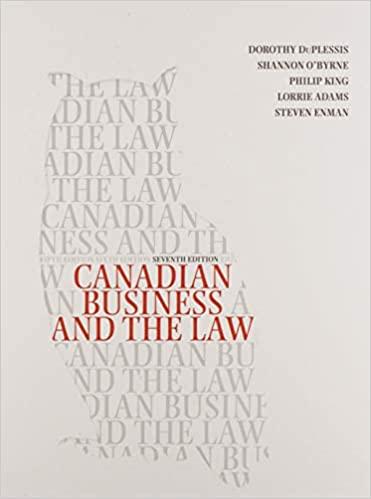An employee of Coca-Cola Co., was convicted of conspiracy to steal and sell Coca-Colas trade secrets. The
Question:
An employee of Coca-Cola Co., was convicted of conspiracy to steal and sell Coca-Cola’s trade secrets. The employee, an executive assistant to a high-level Coca-Cola executive at the company’s Atlanta headquarters, provided co-conspirators with confidential information and a sample of a new Coca-Cola drink. One of the co-conspirators wrote to PepsiCo, claiming to be a high-level employee with Coca-Cola and asking for $10 000 for trade secrets and $75 000 for a new product sample. PepsiCo informed Coca-Cola, which contacted the FBI. An undercover agent paid $30 000 for the documents, marked “classified and confidential,” and the sample.
He promised the balance after the sample was tested. The agent offered $1.5 million for other trade secrets and the suspects were arrested on the day that the exchange was to occur. It was clear that the information and sample came from the employee as video surveillance showed her at her desk going through multiple files and stuffing documents into her bags.[1] This situation involves a criminal conviction for conspiracy to steal and sell trade secrets. How does the civil law provide protection for trade secrets? What steps should companies like Coca-Cola take to protect trade secrets?
Step by Step Answer:

Canadian Business And The Law
ISBN: 9780176795085
7th Edition
Authors: Philip King Dorothy Duplessis, Shannon O Byrne





